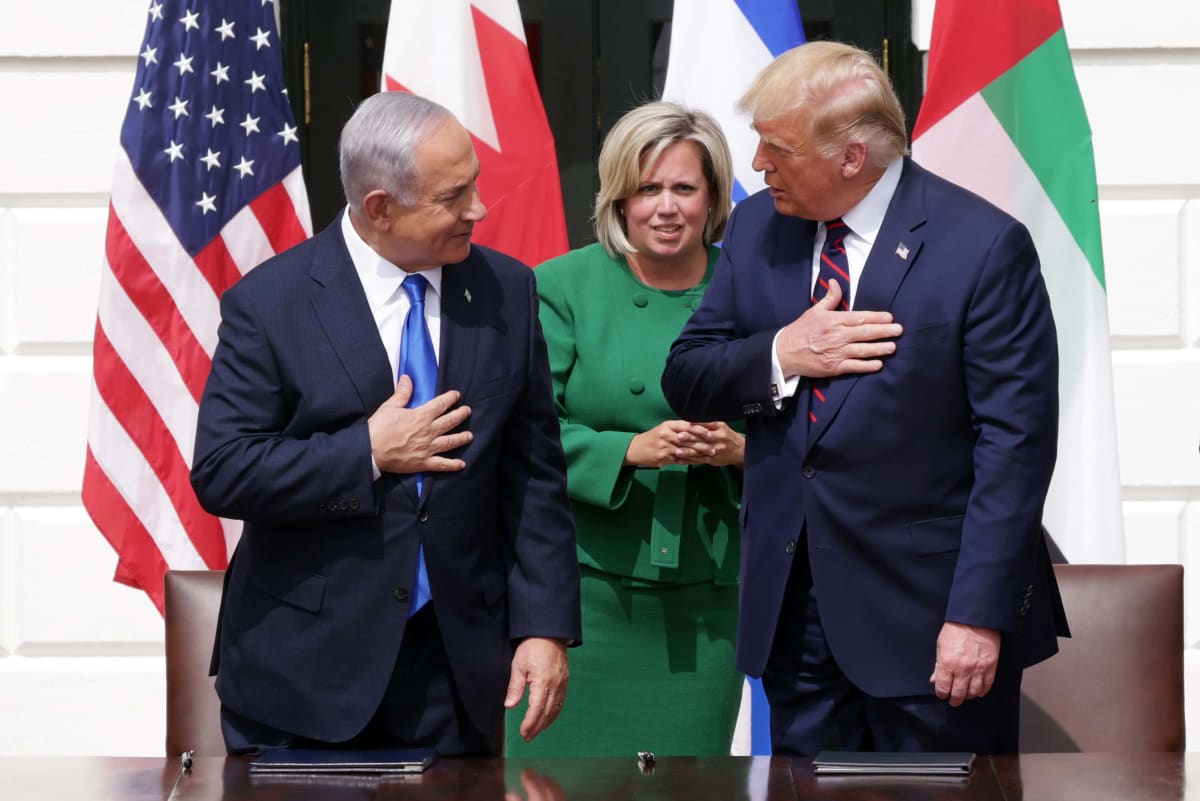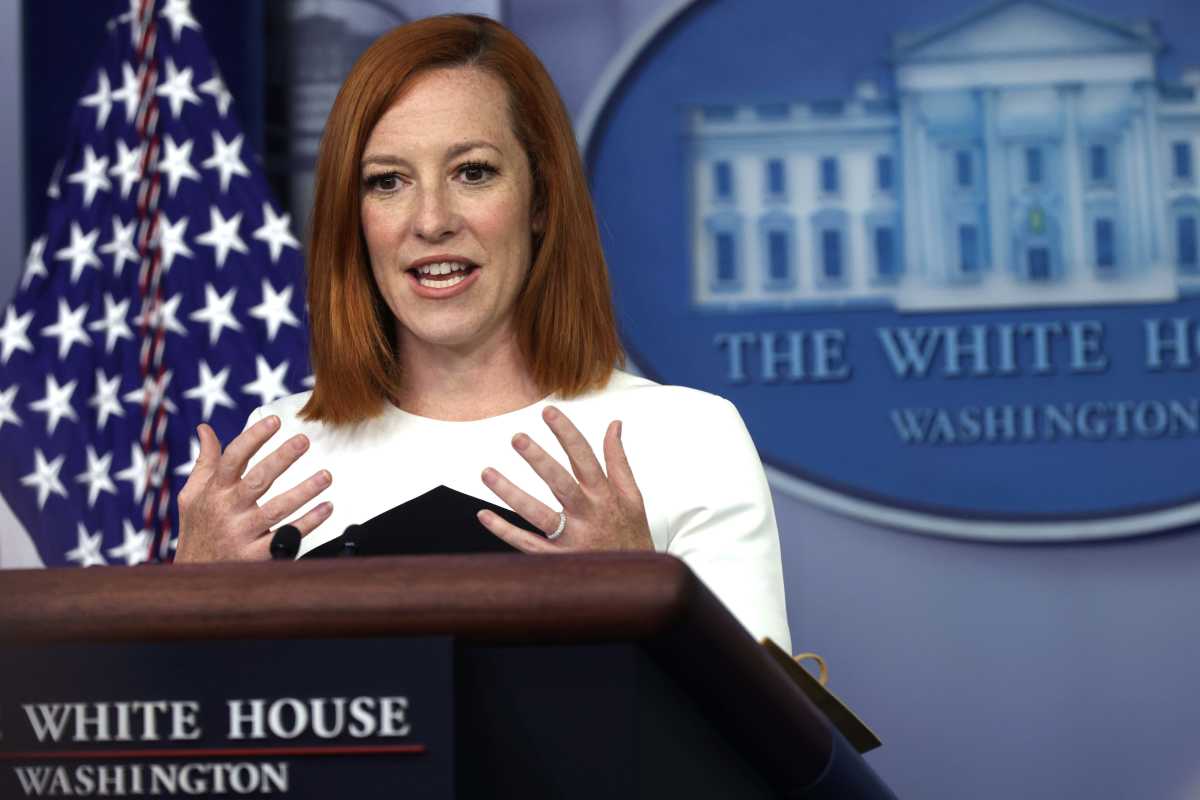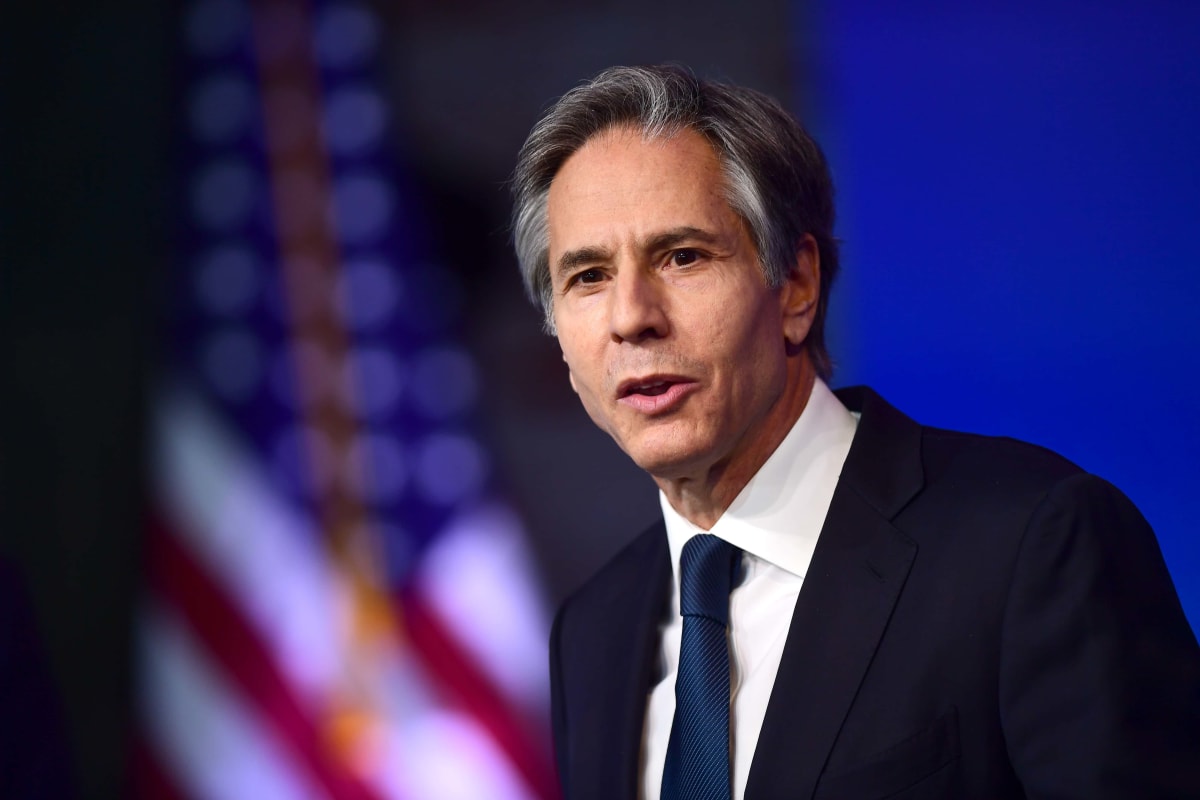Israel-Palestine conflict: Joe Biden is yet to reverse Donald Trump's pro-Israel policies

President Joe Biden took to reversing a number of policies that his predecessor Donald Trump had initiated in his four years in office soon after taking oath in January this year. It was hoped in many quarters that the Democratic president would do the same when it came to Israel and Palestine, particularly after his GOP predecessor openly backed the Jewish state and made moves that deeply irked the Palestinians and their sympathizers. In his time, the US also orchestrated a procedure whereby a number of Arab states normalized their relations with Israel, putting the Palestinians’ cause under more challenge.
Although Biden had never promised a complete reversal of Trump’s one-sided approach to the Israel-Palestine problem which has escalated to dangerous levels since last week leaving hundreds dead, he had blasted many of the previous administration’s decisions on the volatile region in the Middle East as “destructive” and “short sighted”. But almost four months since taking charge, Biden has not touched many of Trump’s pro-Israel policies, causing frustration among pro-Palestine circles in his own party as well as in the Middle East. Recently, Biden said Israel has its right to self-defense against rocket attacks that have been launched by Hamas and other terrorist groups.
RELATED ARTICLES
Did Biden govt change US envoy to Israel's Twitter handle? New name features Gaza and West Bank, changes back
Was Joe Biden's month-long delay in calling Benjamin Netanyahu intentional? Trump called Israeli PM in 2 days
During his presidency, Trump made the US depart from its longstanding position on the Middle East conflict and fully backed Israeli Prime Minister Benjamin Netanyahu's hard-line agenda and severing diplomatic channels with the Palestinians. The maverick Republican also stopped annual financial aid for the Palestinian Authority worth half-a-billion dollars, pressurizing it to accept his two-state solution favoring the Israelis and even recognizing Jerusalem as the capital of Israel and moving the American embassy there.

Biden has been clear that he backs a two-state solution to the conflict but has stopped short of touching some of the most contentious issues between the conflicting sides even when their clashes have escalated alarmingly.
The current president, for instance, has not yet shown any intent to bring the American embassy back to Tel Aviv from Jerusalem to reverse one of the most controversial steps that Trump took in the Middle East that thrilled his conservative and right-wing pro-Israel supporters and evangelical Christians but offended the Palestinians and their supporters. In fact, Trump’s decision followed through on a 1995 law (Bill Clinton was the president then) that recognized Jerusalem as the capital of Israel and Biden, who was a senator then, had voted for it. Successive presidents though stopped short of implementing the move, abiding by the international view that the holy city’s status should be something negotiated between Israel and Palestine as part of a broader peace deal that would see the establishment of the Palestinian state. During his presidential run last year, Biden said he would keep the US embassy in Jerusalem despite slamming Trump’s decision as “short-sighted and frivolous”.
The current administration has also remained silent on what defines Jerusalem’s boundaries, part of a larger American policy vacuum feeding into the situation on the ground, Khaled Elgindy, director of the program on Palestinian-Israeli affairs at the Middle East Institute, told the USA TODAY.

When White House Press Secretary Jen Psaki was on Friday, May 14, asked by journalists at a press briefing about Biden’s position in East Jerusalem as part of a two-state solution, she did not give a clear answer. “That is an issue that has long been and will always be for discussion between two parties in a negotiation about the path forward, so I don't have an additional position,” she said. The new administration has also not given a clear idea whether the US Consulate General in Jerusalem, which had served as Washington’s main channel of communication to the Palestinians, would be reopened. The Trump White House made the move in early 2019 and merged the consulate with the embassy to serve as a single diplomatic mission. Psaki did not answer queries on reopening the consulate.
The Biden administration, according to USA TODAY, has also not made resolving the Israel-Palestine conflict a priority even though the incumbent president has backed the idea of a two-state solution. Biden also has not named any high-profile special envoys to jump-start the peace process, something many presidents in the past have done. The state department has only sent Lebanon-born Hady Amr, the deputy assistant secretary for Israeli-Palestinian affairs and press and public diplomacy, to the region amid the latest escalation to offer mediation.
Biden has not revered Trump policy on Golan Heights
The Biden administration also did not reverse Trump’s controversial move of recognizing Israeli sovereignty over the Golan Heights, a disputed territory that Israel seized from Syrian control during the Six-Day War in the 1960s. Previous American administrations called the territory “occupied” and refused to recognize Israel’s annexation but Trump departed from the tradition without caring for the backlash the US faced from the United Nations and allies like France and the UK. In February, Biden’s Secretary of State Antony Blinken suggested that the Democratic president would allow the Trump-era policy to remain in force even though he did not completely endorse the annexation. He told CNN: “As a practical matter, the control of the Golan in that situation, I think, remains of real importance to Israel’s security. Legal questions are something else, and over time if the situation were to change in Syria, that’s something we look at, but we are nowhere near that.

However, the Biden administration reversed one of Trump’s policies and it was restoring funding for the UN aid program for the Palestinian refugees (UN Relief and Works Agency) and other programs. It decided to send $75 million to the West Bank and Gaza as an economic aid, $10 million for peace-building programs through the US Agency for International Development and $150 million for the UNRWA.










